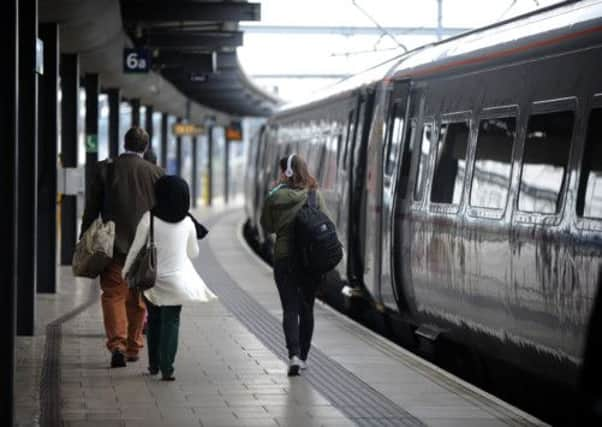East Coast ‘better’ in private hands


Tory Minister Simon Burns denied his decision to make the East Coast contract a priority ahead of the next general election was driven by “ideology”.
He insisted that it was in the best interests of passengers and taxpayers to have services back in the hands of a private firm as quickly as possible.
Advertisement
Hide AdAdvertisement
Hide AdThe East Coast main line was taken into public hands in 2009 to maintain services following the collapse of the contract with operator National Express.
The then-Labour Government made clear the move was only a temporary one but, since moving into opposition, Labour has called for the service to remain in the public sector.
However, a revised timetable set out recently by the Department for Transport (DfT) in the wake of last autumn’s collapse of the West Coast mainline competition says the new 15-year East Coast contract will begin in February 2015, three months before the next election.
By contrast, the new West Coast competition, originally scheduled to start in 2014, has now been delayed for another two and a half years.
Advertisement
Hide AdAdvertisement
Hide AdUnder questioning from Labour MPs on the Commons transport committee yesterday, Mr Burns admitted the Government had made the East Coast line its “priority”, but denied the decision was driven by politics.
“This is not ideological,” he said. “It’s in the best interests of taxpayers and passengers.”
He went on: “When the East Coast mainline was in effect taken into public ownership, it was never intended that this was a long-term future solution.
“It was a short-term solution to an immediate problem, and the [Labour Government] gave every indication in their public statements at the time that they were as anxious as we are now to return it to a private sector franchise when it was possible to do so.
Advertisement
Hide AdAdvertisement
Hide Ad“We believe that that time is now, and that that should come ahead of the West Coast mainline in sorting out its franchise arrangements.”
An independent report commissioned by the DfT following the collapse of the West Coast competition recommended the department should not over-stretch itself by trying to re-let too many contracts at the same time.
Mr Burns said he believes Virgin Trains are currently in a better position to “sustain and build upon improvements to services” on the West Coast line – which they are now running on a temporary basis – than Government-owned Directly Operated Railways are on the East Coast line.
“I think that in difficult circumstances, the East Coast main line has performed reasonably well in providing a continuity of service,” he said. “But the problem is it has plateaued.
Advertisement
Hide AdAdvertisement
Hide Ad“What it needs is an infusion of innovation and stimuli which I believe only the private sector can do.”
Mr Burns said the electrification of the line – undertaken in the 1980s and 1990s – was now “antiquated” and required a fresh investment programme to improve the reliability of services between Yorkshire and the capital.
“If you look at the latest monthly figures for reliability and punctuality, they are the worst of 19 franchises,” he said.
“We haven’t seen the imaginative investment that we would hope and that we believe a private franchise holder should provide.
“We think the plateau of providing a service is not good enough for passengers.”